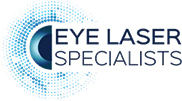Have you ever considered life without the need for glasses or contact lenses? Laser eye surgery has revolutionised the way we approach vision correction, allowing countless individuals to enjoy clear, unaided vision. In this guide, we will outline the process, laser eye surgery eligibility, and various factors that determine whether you are a suitable candidate for this life-changing procedure.
Understanding What a Laser Eye Surgery Is
Only some people can undergo laser eye surgery, otherwise known as laser vision correction surgery. Factors like age, prescription stability and overall health are all considered when determining eligibility for the procedure. It is important to understand these criteria in order to make an informed decision about whether or not this type of vision-correcting solution would be suitable for you.
The operation involves reshaping the cornea (which sits at the front of your eyes) with a focused beam of light, consequently improving your focusing ability without relying on glasses or contact lenses. This cutting-edge technology provides patients with enhanced sight after successful completion instead!
When considering undergoing laser eye surgery (or any other form of Vision Correction), always take into account pregnancy/breastfeeding status, among other necessary factors that must also comply with recommended limits set out by specialised personnel before deciding if this may potentially work best for you.
Age Requirements for Laser Eye Surgery
The minimum age for laser eye surgery is 18 years old as their vision can still change during this period, which could influence the procedure’s success. There is no official upper limit on someone’s age in order to obtain laser eye correction, though any potential candidate should have attained stability concerning their eyesight before they are considered eligible.
Age plays an essential role when it comes to being able to undertake vision-based operations such as LASIK and must remain stable prior to starting such surgeries.
Prescription Stability: A Key Factor
Eye laser surgery can be a great option for those who have had their prescription stable and unchanged for at least 12 months. This tends to happen during young adulthood. High prescriptions or past eye surgeries may result in less predictable outcomes with the potential of risks involved.
Before beginning any Laser Treatment for vision correction, it is advised that you consult an experienced LASIK surgeon to evaluate your suitability first, as they are best placed to determine if Lasik Surgery would meet your optical needs safely.
The Importance of Healthy Eyes
Eye health is a critical factor when considering eligibility for any vision correction procedure, particularly laser eye surgery. So, when considering getting this procedure, remember it’s not a one-size-fits-all adventure. If you’re experiencing conditions like glaucoma, cataracts, or any corneal hiccups, it might mean this particular ride isn’t for you.
And for all the soon-to-be or new moms out there, the rollercoaster of hormonal shifts during pregnancy and breastfeeding can also put a pause on those laser surgery plans. It’s always best to have a heart-to-heart with your eye doctor to see what’s best for your unique vision story.
The surgeon must always evaluate your past medical history concerning previous or current eye problems prior to recommending this type of treatment plan in order for it to address your needs specifically and appropriately. Only then can it be determined if laser eye therapy is a suitable alternative care solution for you, both safely and effectively!
General Health Considerations
In order to be a good candidate for laser eye surgery, an individual must maintain good general health since some existing conditions and medications may influence one’s eligibility or the stability of one’s vision. Immune disorders such as Sjögren’s syndrome, rheumatoid arthritis, type 1 diabetes, or AIDS could render someone ineligible for this procedure due to its associated risks. Some medicines can also increase these dangers.
Immunosuppressants are able to slow down post-operative healing, while certain drugs might raise the chances and/or intensity of dry eye syndrome. You must speak with your specialist about any pre-existing medical condition To current medication use so they can accurately assess if laser eye surgery would be a safe option for you personally.
Pregnancy and Breastfeeding Concerns
Pregnant or nursing women should delay laser eye surgery due to potential hormonal fluctuation, which can temporarily affect vision. As a shift in the shape of the cornea could result from these changes, it is best for pregnant women to wait until their hormone levels have stabilised prior to considering this type of procedure.
Dry eyes tend to be more common during pregnancy, and they may slow down the healing process after an operation such as laser eye surgery takes place. For safety purposes with regard to medication taken both before and after any kind of surgical treatment involving lasers aimed at one’s eyesight, breastfeeding or expecting mothers ought not to go through with said procedures until all hormonal conditions return to normalcy afterwards.
Laser Eye Surgery for Age-Related Vision Issues
 Presbyopia, a common vision issue related to age that affects an individual’s ability to see up close, can still be treated with laser eye surgery such as Monovision LASIK. It is important for those experiencing age-related issues to know that the upper limit for performing this type of procedure does not exist, and they should talk with their eye surgeon about it being a viable option. ‘
Presbyopia, a common vision issue related to age that affects an individual’s ability to see up close, can still be treated with laser eye surgery such as Monovision LASIK. It is important for those experiencing age-related issues to know that the upper limit for performing this type of procedure does not exist, and they should talk with their eye surgeon about it being a viable option. ‘
Surgery could help improve overall quality by restoring near-vision capabilities, which may well outweigh any risks involved in the process itself. Regardless, consulting your doctor prior ensures you have all the necessary facts regarding effectiveness or safety so you can make an informed decision on whether laser eye treatment works best for addressing your needs when dealing with ageing eyesight impairments.
Alternative Treatment Options
If you are not eligible for laser eye surgery, speaking with your ophthalmologist about alternative solutions is imperative. Treatment options include implantable lenses and refractive lens exchange. This medical procedure removes the eye’s natural lens to replace it with an artificial one, thus correcting vision impairment. Implantable collamer lenses are also available. They consist of surgical insertion into the eyes, which improves sight clarity afterwards.
By exploring all accessible remedies before making any decisions on how best to address their visual difficulty, people can be assured that their course of action will match up exactly with what’s necessary regarding specific needs.
Evaluating Realistic Expectations
Thinking about laser eye surgery? It’s like prepping for an adventure. While most journeys are smooth, it’s always wise to pack for the occasional bump in the road. While the majority sail through without a hitch, a few might experience some mild side effects like temporary dry eyes or a little vision quirkiness for a short while. Know the terrain, set your expectations, and get ready for clearer horizons!
These should resolve within a few months at most. To guarantee an effective outcome from LASIK surgery, informing your eye surgeon about any pertinent medical history is essential for success. Open dialogue with your doctor will provide you with all the necessary information so that you can decide if this procedure fits into your plans.
Tips for Choosing the Right Eye Surgeon
Selecting a qualified eye surgeon is key to an optimal laser eye surgery experience. The doctor should be certified by the American Board of Ophthalmology and have extensive knowledge of this procedure with lasers. When assessing potential surgeons, review their approach, including what type of laser will be used, how it will be implemented, and expected outcomes from the operation.
When considering any prospective doctors specialising in surgical vision correction procedures, consider inquiring about their background expertise. Confirming they’ve done many successful surgeries before and verifying that the success rate has been high among those procedures.
By thoroughly researching your chosen ophthalmologist’s qualifications, you can trust that your decision to move forward with laser eye treatment has been made prudently & securely.
Ultimately, laser eye surgery offers the potential for people to improve their vision and quality of life drastically. Deciding whether this procedure is suitable should consider age, prescription stability, overall health status, and any existing conditions or issues affecting the eyes. Those considering laser eye surgery must seek expert advice from a qualified and reputable eye surgeon to maximise outcomes associated with this surgical treatment of vision correction.
Frequently Asked Questions
 What qualifies a person for laser eye surgery?
What qualifies a person for laser eye surgery?
In order to be eligible for laser eye surgery, you must fulfil certain criteria. These include being 18 or older and having had stable vision and prescription over the past 12 months. Applicants cannot be pregnant or breastfeeding or have any previous history of ocular issues. People suffering from long-sightedness, short-sightedness, and astigmatism are all suitable candidates for this form of eye surgery.
Who is not a good candidate for laser eye surgery?
For those with existing medical or eye concerns such as glaucoma, corneal ailments, macular degeneration, and diabetic retinopathy, laser eye surgery may not be a suitable option.
Is laser eye surgery covered by Medicare?
Medicare will not pay for laser eye surgery since it is categorised as a cosmetic procedure, thereby being excluded from Medicare coverage.
At what age can you get laser eye surgery in Australia?
Those 18 or older and healthy may be eligible for laser eye surgery in Australia. There is no particular age ceiling, though deliberation might need to occur if the patient happens to be over 40. Surgery involving lasers could help correct various vision problems regardless of how old you are, as general health conditions allow it.
Is there an upper age limit for this procedure?
Though there is no definite maximum age limit for laser eye surgery, potential candidates must still fulfil other requirements in order to be eligible. Laser eye or eye surgical procedures can then take place regardless of
How long does the laser eye surgery procedure take?
The actual laser treatment usually takes less than 10 minutes per eye. However, patients should plan on being in the office for about two hours on the day of the surgery to allow for pre-operative preparation and post-operative care.
Does laser eye surgery hurt?
Most patients report feeling little to no discomfort during laser eye surgery. Anaesthetic eye drops are used to numb the eyes before the procedure, and you may be given a mild sedative to help you relax.
Getting excited about your new and improved vision post-laser eye surgery?
You should be! Most folks get a sneak peek of their clearer world almost immediately after the procedure. But, just like adjusting to a new pair of shoes, give your eyes a few weeks to truly hit their stride and fine-tune.
Summary
Ultimately, laser eye surgery offers the potential for people to improve their vision and quality of life drastically. Deciding whether this procedure is suitable should consider age, prescription stability, overall health status, and any existing conditions or issues affecting the eyes. Those considering laser eye surgery must seek expert advice from a qualified and reputable eye surgeon to maximise outcomes associated with this surgical treatment of vision correction.
References:
What to know about laser eye surgery
https://www.medicalnewstoday.com/articles/laser-eye-surgery
Eyes – Laser eye surgery
https://www.betterhealth.vic.gov.au/health/conditionsandtreatments/eyes-laser-eye-surgery
Laser Eye Surgery




